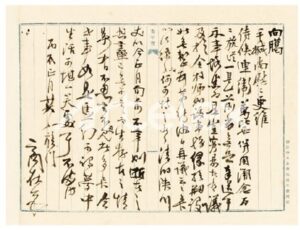Lee Sang-jae (1850 – 1927) was a prominent independence activist during the Japanese colonial period.
In 1896, he became involved in the Independence Club and the All-People’s Congress, leading public enlightenment efforts alongside figures like Seo Jae-pil and Syngman Rhee. However, after the forced dissolution of the Independence Club and the All-People’s Congress in 1899, he was imprisoned for his involvement in the Reform Party incident and subsequently resigned from public office under Japanese rule.
After 1905, Lee Sang-jae, along with Yun Chi-ho, led the YMCA and focused on educating and enlightening the youth. Although he did not directly participate in the March 1st Movement, he was arrested as a suspect and later became the president of the *Chosun Ilbo* and engaged in activities with the New Korea Society (Shinganhoe), continuing his commitment to youth and independence movements. Throughout his life, he lived frugally, without seeking wealth, often moving from one rented house to another.
\
.

